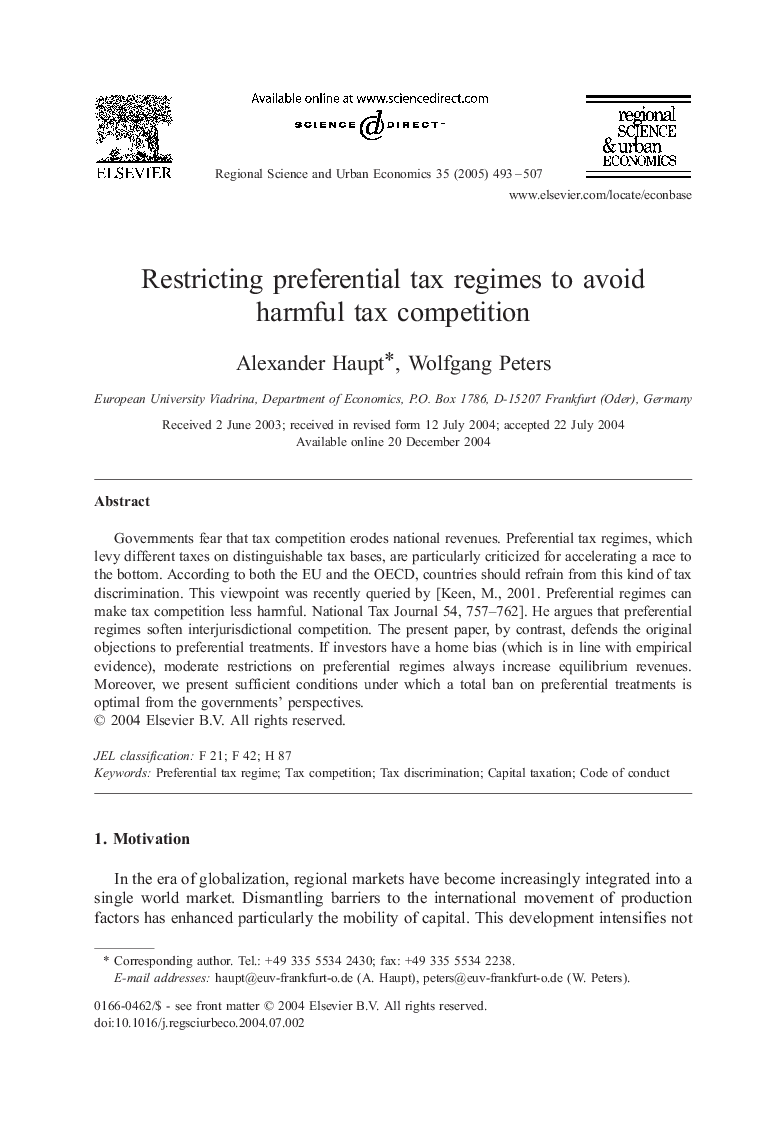| Article ID | Journal | Published Year | Pages | File Type |
|---|---|---|---|---|
| 10482370 | Regional Science and Urban Economics | 2005 | 15 Pages |
Abstract
Governments fear that tax competition erodes national revenues. Preferential tax regimes, which levy different taxes on distinguishable tax bases, are particularly criticized for accelerating a race to the bottom. According to both the EU and the OECD, countries should refrain from this kind of tax discrimination. This viewpoint was recently queried by [Keen, M., 2001. Preferential regimes can make tax competition less harmful. National Tax Journal 54, 757-762]. He argues that preferential regimes soften interjurisdictional competition. The present paper, by contrast, defends the original objections to preferential treatments. If investors have a home bias (which is in line with empirical evidence), moderate restrictions on preferential regimes always increase equilibrium revenues. Moreover, we present sufficient conditions under which a total ban on preferential treatments is optimal from the governments' perspectives.
Related Topics
Social Sciences and Humanities
Economics, Econometrics and Finance
Economics and Econometrics
Authors
Alexander Haupt, Wolfgang Peters,
